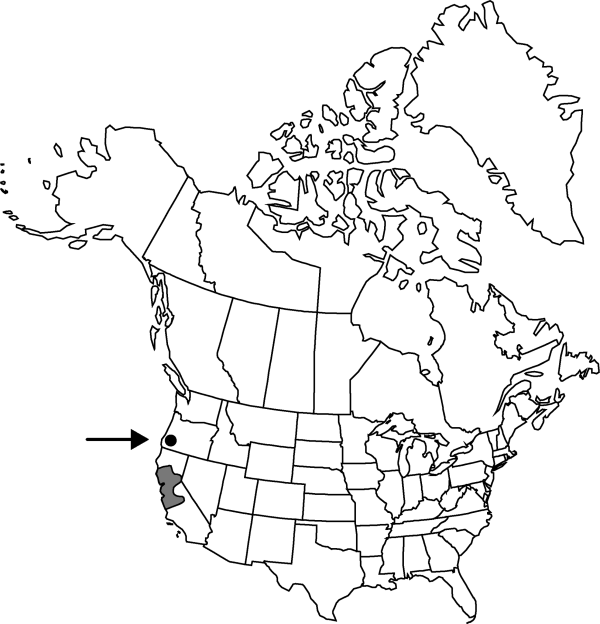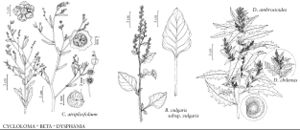Dysphania chilensis
Ukrayins’k. Bot. Zhurn., n. s. 59: 382. 2002.
Plants annual. Stems erect to ascending, branched, 4–6 dm, ± glandular-pubescent, white-villous. Leaves aromatic, distal leaves sessile; petiole 2–2.5 mm; blade lanceolate, 2–9 × 0.5–4 cm, base cuneate, margins of distal leaves shallowly dentate to sinuate-pinnatifid, apex acuminate, villous and copiously gland-dotted (rarely nearly glabrous). Inflorescences terminal and axillary spikes, 3–15 cm; glomerules globose, 1.7–2.3 mm diam.; bracts leaflike, narrowly ovate, 1–1.8 cm, apex acuminate. Flowers: perianth segments 5, connate for ca. 1/2 their length, distinct portion ovate, 0.7–1 mm, apex obtuse, rounded abaxially, villous, covering fruit at maturity; stamens 5; stigmas 3. Achenes ovoid; pericarp nonadherent, glandular. Seeds vertical, black, ovoid, 0.5–0.8 × 0.8 mm; seed coat smooth.
Phenology: Fruiting summer–fall.
Habitat: Waste areas
Elevation: 0-100 m
Distribution

Introduced; Calif., Oreg., native to s South America.
Discussion
Selected References
None.
